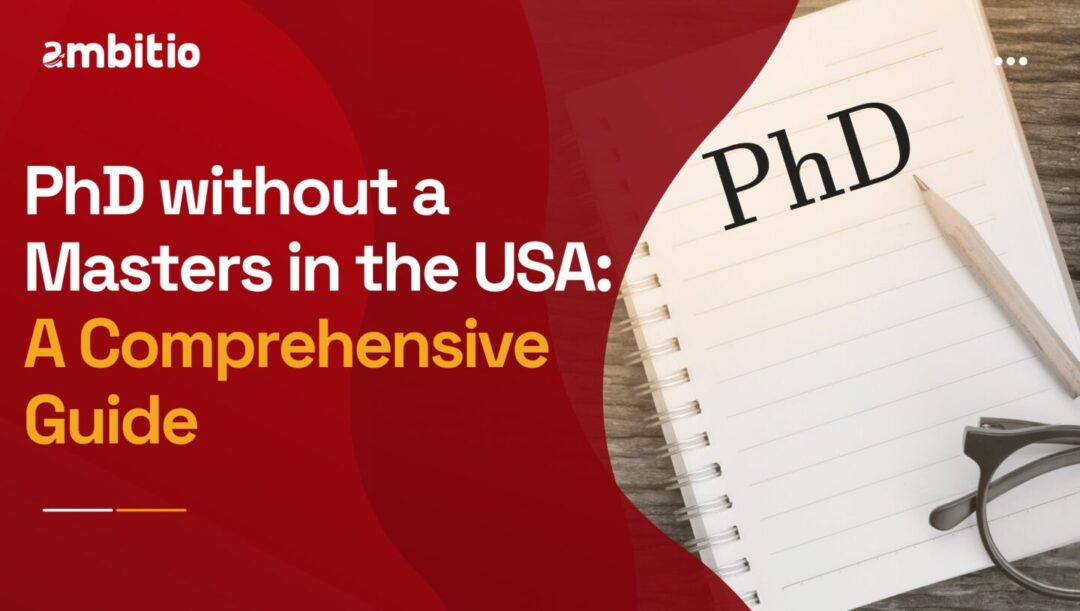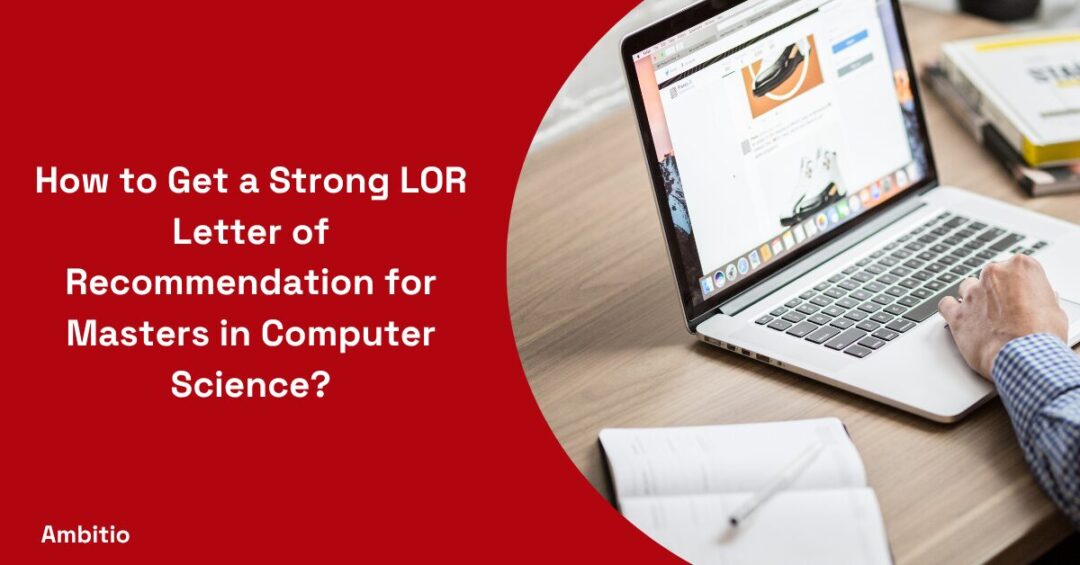16 August 2024
7 minutes read
PhD without a Masters in the USA: A Comprehensive Guide

Key Takeaways:
- Direct Entry to PhD: Many U.S. universities now offer programs allowing students to pursue a PhD directly after completing their bachelor’s degree, bypassing the master’s.
- Time and Cost Efficiency: This pathway saves time and money, reducing the overall duration and cost of higher education.
- Research Focus: Direct PhD programs emphasize intensive research, allowing students to delve deeply into their field of study from an early stage.
- Stringent Criteria: Admission to these programs is competitive, with a strong emphasis on undergraduate academic performance and research experience.
- Varied by Field: Availability and norms of direct PhD programs can vary significantly across different academic disciplines and universities.
In recent years, a paradigm shift has been evident in the academic landscape. The USA, known for its rigorous academic structure, has begun to adapt and transform. Many universities now offer candidates the chance to pursue a PhD without a master’s degree.
Such an option seems tempting for those looking to save time and dive directly into research. This direct entry, or “bachelor’s to PhD,” program is a welcome change for many aspiring scholars.
Why the Sudden Shift?
The educational field is dynamic, and constantly evolving based on societal needs and scientific progress. As global challenges become more complex, there’s a demand for in-depth, specialized research.
This means a longer time spent on research rather than course completion. The direct PhD route facilitates just that – more time on research, and less on course study.
Universities Leading the Way
Several top-tier universities are at the forefront of this transition. For instance, a student aiming for a PhD in Computer Science or Bioengineering might find the direct PhD path available, whereas it might not be the case for someone seeking a degree in History or Philosophy. Always ensure you check specific departmental guidelines.
Why Consider a PhD Without a Master’s Degree?
The lure of diving straight into research after an undergraduate program has several enticing advantages.
Duration and Costs
The primary advantage for many is the saved time. Traditionally, students spend two years in a master’s program, followed by 4-6 years for a PhD. By opting for a direct PhD, one might shave off a couple of years from their academic journey. This not only translates to saved time but also reduced tuition and associated costs.
Early Start to Research
Starting research early means a more extended period for deep study and the potential to make significant breakthroughs. Additionally, diving directly into research post-bachelors can lead to early publications, making the candidate’s academic profile stronger.
Admission Criteria:
Candidates for direct PhD programs must demonstrate academic excellence, particularly in their major-specific courses, and have significant undergraduate research experience.
Eligibility and Admission Criteria
Jumping from a bachelor’s program to a PhD isn’t a walk in the park. Admission criteria are often more stringent for direct PhD applicants.
Demonstrating Academic Excellence
Universities typically expect a stellar undergraduate academic record, emphasizing strong grades in major-specific courses. It’s also not just about grades – active participation in relevant seminars, workshops, and other academic events can enhance a candidate’s profile.
Research Experience and Recommendations
An essential criterion is demonstrable undergraduate research experience. Potential PhD candidates must have participated in significant research projects and ideally have some publications or research reports to showcase.
Furthermore, having recommendation letters from known figures in the field or previous research supervisors can considerably strengthen an application.
Program Availability:
The availability of direct PhD programs varies across disciplines and institutions. For example, fields like Computer Science and Bioengineering at institutions such as MIT and Stanford offer direct PhD options, while other fields and universities might not.
Universities Offering Direct PhD Programs
As the appeal of direct PhD programs grows, many universities across the USA have adopted this approach, allowing students to delve into intensive research immediately after their bachelor’s.
However, the offerings and requirements vary from one institution to another, and often from one department to another within the same university. Here’s an expanded look into some of the universities leading the charge and their specific programs:
Massachusetts Institute of Technology (MIT)
MIT has always been at the forefront of innovation, and its approach to graduate studies is no different. Several departments within MIT allow for a direct PhD pathway:
- Biology: The department seeks candidates with a strong foundation in biology and other sciences. Undergraduate research experience is a significant plus.
- Electrical Engineering & Computer Science: This department often values a blend of academic excellence and demonstrable skills, such as coding or design projects.
Stanford University
Stanford is another top-tier institution where certain departments entertain direct PhD applications:
- Chemistry: Aside from a stellar academic record, the department values candidates with laboratory experience and those who’ve contributed to research publications.
- Physics: A strong foundation in physics, proven through coursework, and undergraduate research, often sets successful candidates apart.
University of California, Berkeley (UC Berkeley)
UC Berkeley has a wide array of programs, some of which allow candidates to transition directly from their bachelors:
- Molecular & Cell Biology: Here, the emphasis is on in-depth knowledge of biology and related disciplines. Candidates with research papers or projects often have an edge.
- Environmental Science, Policy, & Management: This interdisciplinary program values candidates with a broad perspective on environmental issues and ideally some fieldwork or research experience.
Princeton University
At Princeton, the blend of traditional academic values with forward thinking has led to the adoption of direct PhD programs in select departments:
- Mathematics: A profound understanding of advanced mathematics, as well as participation in relevant seminars, workshops, or Olympiads, can be beneficial.
- Neuroscience: The department seeks individuals keen on exploring the frontiers of brain science. Laboratory experience, especially with techniques such as fMRI or electrophysiology, can be a plus.
Caltech (California Institute of Technology)
Caltech, renowned for its research contributions, also offers some direct-to-PhD programs:
- Aeronautics: Candidates with a background in engineering, physics, or applied mathematics and a penchant for aerospace studies stand out.
- Biochemistry & Molecular Biophysics: Those with a deep understanding of chemistry and biology, complemented by laboratory experience, are often favored.
Tips for Aspirants
Before diving into the application process:
- Research Thoroughly: Understand the specific requirements of your desired program and department. Some might prioritize academic grades while others may emphasize research experience.
- Engage with Current Students: Connecting with PhD students can provide a clearer picture of what to expect and how to strengthen your application.
- Seek Guidance: From academic advisors to professors, gathering feedback can fine-tune your application, making it more aligned with what the department seeks.
While the option of direct PhD programs is increasingly available, it’s essential to understand that each university and department will have its specific criteria.
Being well-researched, prepared, and proactive can make a significant difference in the application process. The journey might be intense, but the rewards, both intellectual and professional, are profound.
Your gateway to unlocking premier universities!
Effortlessly navigate admissions with personalized support and expert guidance. Enroll now and initiate your success story! Enroll in Ambitio Elite
Need-to-Know Before Applying
Before embarking on the application journey, it’s essential to ensure you’re a good fit. Thoroughly research the program, faculty, available resources, and funding opportunities. Getting in touch with current PhD students or alumni can provide invaluable insights.
Challenges of a Direct PhD Path
Pursuing a PhD immediately after obtaining a bachelor’s degree is undoubtedly a unique and commendable academic route. While there are significant advantages to this path, it’s not without its hurdles.
Let’s delve deeper into the challenges that candidates may face when choosing a direct PhD path and ways to navigate these challenges effectively:
The Intensity of the Learning Curve
Entering a PhD program straight from an undergraduate degree can be a bit of a culture shock for many:
- Depth Over Breadth: While bachelor’s programs typically offer a broad understanding of a field, PhDs require intense specialization. This transition from a general to a highly specialized focus can be demanding.
- Advanced Coursework: Direct PhD students may find themselves in advanced courses with peers who have a master’s under their belt. This can make the initial semesters particularly challenging as they grapple with complex topics without the cushioning of intermediary subjects.
Adapting to the Research Rigor
PhD programs are research-intensive, which is a significant transition from undergraduate studies:
- Research Autonomy: Unlike structured undergraduate lab exercises, PhD research is often self-directed. This requires independent problem-solving, a skill that takes time to cultivate.
- Publication Pressure: There’s an emphasis on producing publishable results in PhD programs. Navigating the world of academic publishing, from selecting suitable journals to responding to reviewer comments, can be a steep learning curve.
Potential Missed Networking Opportunities
A master’s program is more than just academic coursework. It often provides students with a chance to network and form connections:
- Limited Alumni Connections: Going straight to a PhD might mean you miss out on two sets of alumni networks – one from your master’s and one from your PhD.
- Fewer Peer Collaborations: Master’s programs often involve group projects and collaborations, which can lead to long-lasting professional relationships. Direct PhD candidates might need to be more proactive in seeking such collaborative opportunities.
Social and Emotional Adjustments
The personal adjustments and sacrifices inherent in any PhD program can be particularly accentuated in a direct PhD route:
- Younger Peer Group: Being younger than many of your peers might lead to feelings of isolation or imposter syndrome.
- Lack of Break: Many students use the time between a bachelor’s and a PhD for personal development, travel, or gaining industry experience. Jumping straight into a PhD means you’re back in the academic grind without a significant break.
Navigating Financial Complexities
While getting to the finish line faster might seem cost-effective, there are financial considerations:
- Funding Challenges: Some funding opportunities or scholarships might be tailored specifically for master’s students. Direct PhD students need to be more resourceful in seeking financial support.
- Longer Commitment: If you’re self-funding, remember that a PhD is a long-term financial commitment. Ensure you have a clear understanding of costs and potential financial strain.
Strategies for Overcoming Challenges
- Mentorship: Seek out mentors early on, both within and outside your department. Their guidance can be invaluable.
- Networking: Attend conferences, workshops, and seminars to broaden your network and gain exposure to various facets of your field.
- Self-Care: Recognize the signs of burnout and stress. Engage in activities outside academia to maintain a balanced life.
- Open Communication: Discuss your challenges with your PhD supervisor. They can offer guidance, resources, or even adjust your research load if needed.
Opting for a direct PhD path is a commendable and ambitious decision. However, it’s imperative for candidates to be aware of the potential challenges. With foresight, preparation, and the right support system, these hurdles can be effectively navigated, leading to a rewarding academic journey.
Adjusting to the Research Intensity
A PhD program is undeniably intense. The depth of research, long hours in the lab or library, and the pressure to publish can be overwhelming. Candidates who haven’t experienced the intermediary step of a master’s might find this transition especially taxing.
Networking and Building Relationships
One often overlooked benefit of a master’s program is the networking opportunities it presents. Direct PhD students might need to put in extra effort to establish connections in their field, attend conferences, and collaborate on research.
Conclusion
The prospect of pursuing a PhD without a master’s degree in the USA is both exciting and challenging. It offers a unique pathway for ambitious students eager to delve into research.
However, it’s essential to consider all aspects, from advantages to inherent challenges, before making a decision. Research thoroughly, engage with current students, and reflect on your long-term goals to ensure this path aligns with your academic and professional aspirations.
Schedule Your Expert Call Now: Ready to navigate the college application process with ease? Schedule a call with our mentor at your convenience. We’re here to offer personalized solutions and expert guidance.
FAQs
Is it common to get accepted into a direct PhD program without research experience?
While it’s possible, it’s relatively rare. Research experience is often a significant criterion for acceptance.
Do all universities in the USA offer a direct PhD after a bachelor’s?
No, while the trend is growing, not all universities or departments offer this option. Always check the specific department’s guidelines.
How can I enhance my chances of acceptance for a direct PhD?
Strengthen your profile with solid undergraduate research, obtain strong recommendation letters, and demonstrate clarity in your research goals through your statement of purpose.

You can study at top universities worldwide!
Get expert tips and tricks to get into top universities with a free expert session.
Book Your Free 30-Minute Session Now! Book a call now




























